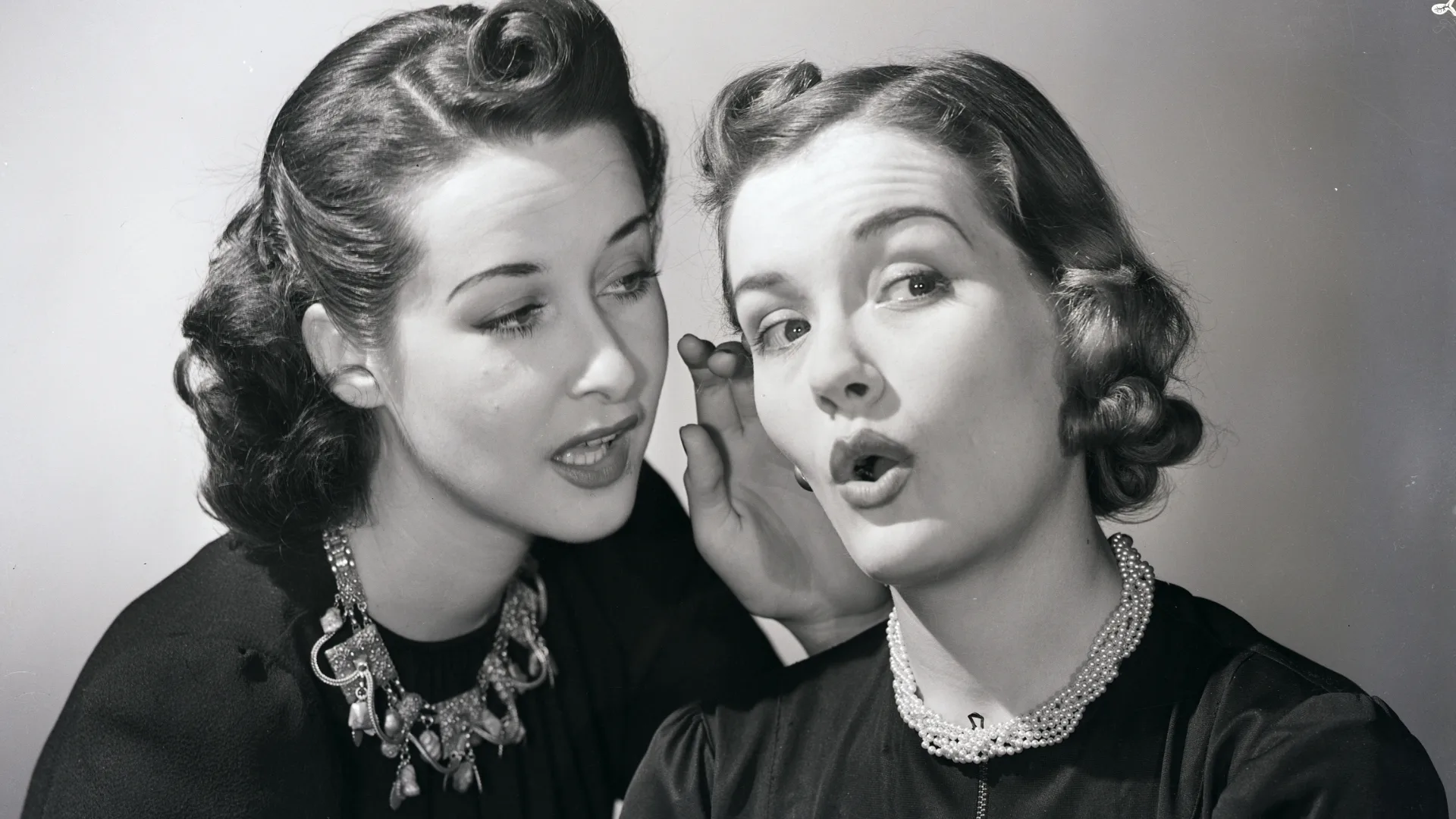Why We Love Gossip & How It’s Actually Good for Us
The Thrill of Sharing Secrets
Imagine this: you and a close friend find yourselves in a cozy corner of a bustling café or tucked away in a dimly lit bar. Excitement crackles in the air as they lean closer, whispering those iconic words: "Just between us…" That moment, filled with potential scandal or surprising revelations, is electric. Are you about to hear about a friend’s secret affair or someone’s questionable decision-making?
The truth is, gossip ignites our curiosity and creates a shared experience that can be both thrilling and bonding.
The Power of Podcasting Gossip
Take, for instance, the popular podcast Normal Gossip hosted by American journalist Kelsey McKinney. Listeners call in to share juicy tidbits they’ve encountered, which McKinney masterfully recounts with all the dramatic flair of a seasoned storyteller. Each revelation transforms into a mini-performance, engaging guests and listeners alike.
In McKinney’s world, gossip isn’t merely idle chatter—it’s a form of modern folklore that illuminates human nature.

Image: Getty
The Cultural Redeemer: Kelsey McKinney’s Mission
In her book, You Didn’t Hear This From Me: Notes on the Art of Gossip, McKinney aims to uplift the misunderstood practice of gossip. Drawing from academic research, social media trends, pop culture, and historical precedents, she champions gossip as a crucial means of connection, community-building, and even survival.
Historically, gossip has been labeled as something trivial, epitomized as the idle talk of those with nothing better to do. But the reality is that it involves discussing anyone in your social circle who isn’t present, creating a web of shared experiences and social norms.
The Science of Gossip
Research shows that both men and women engage in gossip equally, and surprisingly, we’re all adept at it by the tender age of five. A revealing 2019 study found that the average person spends over 50 minutes a day gossiping. If you think you don’t gossip, simply try navigating a day without discussing someone who isn’t around— it’s nearly impossible.
According to Robin Dunbar, a British anthropologist and evolutionary psychologist, the ability to gossip is tied to our very evolution. Language evolved not just to inform, but primarily to maintain social relationships. As scholar Nick Enfield suggests, gossip serves as a tool for persuasion, providing an avenue to navigate social landscapes.
The Emotional Intelligence of Gossip
Mastering gossip isn’t just about what you say, but how you say it. McKinney argues that delivering gossip is akin to an artistic performance—from tone to timing. Good gossipers possess a keen sense of emotional intelligence, which allows them to choose their words wisely, ensuring the information shared is both engaging and responsible.
As McKinney reflects, stories unite us and allow us to explore our place in the world. They enable us to discern wrong from right and build a cohesive social fabric.
The Dual Nature of Gossip
Gossip can forge bonds or tear people apart. Bianca Beersma, a professor of organizational behavior, emphasizes that gossip can either foster cooperation among peers or act as a weapon against someone’s reputation. Thus, the intent behind gossip can reflect more about the gossiper than the subject.
The Trust Factor
What many people overlook is how essential trust is to effective gossip. According to McKinney, gossip thrives on mutual vulnerability. When one person shares information, it comes with the hope that the recipient will honor that trust and not misuse it.
Recognizing this bond is crucial; it transforms casual conversation into a shared experience laden with emotional weight.
The Evolutionary Legacy of Gossip
McKinney hails from a Texas background where gossip was looked down upon, yet her fascination persisted. Ultimately, she argues that the disdain for gossip often comes from a desire to maintain social hierarchies. Gossip, by its very nature, is a leveller—it holds people accountable and can expose unjust behaviors.
The whisper networks that fueled the #MeToo movement are prime examples of how gossip can challenge the status quo. It becomes a form of social justice, empowering individuals to speak up while simultaneously weaving a protective community fabric.
The Role of Gossip in Female Empowerment
Historically, gossip has served as a critical tool for women and marginalized communities, offering vital warnings and support. Researchers refer to this type of gossip as "prosocial gossip," which helps individuals navigate spaces and build solidarity.
The Dynamics of Celebrity Gossip
Celebrities often find themselves the center of attention not only because of their fame but also because their lives—crafted and curated—are ripe for gossip. McKinney refers to this phenomenon as "entitlement gossip," where public curiosity clashes with the private lives of others.
Gossip columnist Ros Reines, who was keenly involved in celebrity news, notes that gossip allows people to relate to the rich and famous in a more human way; they are not untouchable but fallible, just like the rest of us.
Conclusion: Embrace the Art of Gossip
As we move through our daily lives, it’s essential to understand that gossip, when approached with care and intent, can be a powerful social tool. It fosters relationships and provides context for shared norms within our communities.
McKinney challenges us to reconsider gossip—to view it not merely as idle chatter or harmful gossip, but as a vehicle for connection, understanding, and even justice.
So the next time you find yourself exchanging whispers, remember: it’s more than just gossip; it’s a timeless art form that binds us together.
Related Articles:
- The History of Gossip in Celebrity Culture
- The Psychology Behind Why We Share Secrets
- Navigating Friendship Through Gossip
For more insights on social behavior, check out this article on the psychology of gossip.






